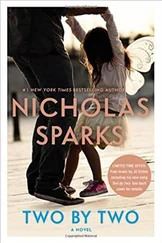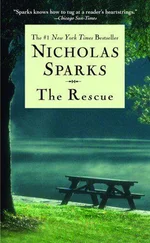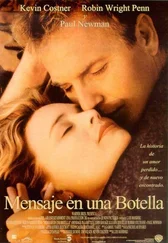She had to hurry now. She packed her things in a duffel bag. Three pairs of jeans, two sweatshirts, shirts. Panties and bras. Socks. Toothbrush and toothpaste. A brush. Mascara for her eyebrows. The little jewelry she owned. Cheese and crackers and nuts and raisins. A fork and a knife. She went to the back porch and dug out the money from beneath the flowerpot. The cell phone from the kitchen. And finally, the identification she needed to start a new life, identification she’d stolen from people who trusted her. She’d hated herself for stealing and knew it was wrong, but she’d had no other choice and she’d prayed to God for forgiveness. It was too late to turn back now.
She had rehearsed the scenario in her head a thousand times, and she moved fast. Most of the neighbors were off at work: she’d watched them in the mornings and knew their routines. She didn’t want anyone to see her leave, didn’t want anyone to recognize her.
She threw on a hat and her jacket, along with a scarf and gloves. She rounded the duffel bag and stuffed it beneath her sweatshirt, kneading and working it until it was round. Until she looked pregnant. She put on her long coat, one that was roomy enough to cover the bump.
She stared at herself in the mirror. Short, dark hair. Skin the color of copper. Pregnant. She put on a pair of sunglasses, and on her way out the door, she turned on her cell phone and set the landline on call forwarding. She left the house through the gate at the side. She walked between her house and the neighbors’, following the fence line, and deposited the garbage bag in their garbage can. She knew that both of them worked, that neither was at home. Same thing for the house behind hers. She walked through their yard and past the side of the house, finally emerging onto the icy sidewalk.
Snow had begun to fall again. By tomorrow, she knew, her footprints would be gone.
She had six blocks to go but she was going to make it. She kept her head down and walked, trying to ignore the biting wind, feeling dazed and free and terrified, all at the same time. Tomorrow night, she knew, Kevin would walk through the house, calling for her, and he wouldn’t find her because she wasn’t there. And tomorrow night, he would begin his hunt.
Snow flurries swirled as Katie stood at the intersection, just outside a diner. In the distance, she saw Super Shuttle’s blue van round the corner and her heart pounded in her chest. Just then, she heard the cell phone ring.
She paled. Cars roared past her, their tires loud as they rolled through the slush. In the distance, the van changed lanes, angling toward her side of the road. She had to answer; there was no choice but to answer. But the van was coming and it was noisy on the street. If she answered now, he would know she was outside. He would know she’d left him.
Her phone rang a third time. The blue van stopped at a red light. One block away.
She turned around, walking into the diner, the sounds muffled but still noticeable — a symphony of plates clanking and people talking; directly ahead was the hostess stand, where a man was asking for a table. She felt sick to her stomach. She cupped the phone and faced the window, praying that he couldn’t hear the commotion behind her. Her legs went wobbly as she pressed the button and answered.
“What took you so long to answer?” he demanded.
“I was in the shower,” she said. “What’s going on?”
“I’m about ten minutes out,” he said. “How are you?”
“I’m okay,” she said.
He hesitated. “You sound kind of funny,” he said. “Is something wrong with the phone?”
Up the street, the signal light turned green. The Super Shuttle van’s turn signal indicated that it was pulling over. She prayed that it would wait. Behind her, people in the diner had gone surprisingly quiet.
“I’m not sure. But you sound fine,” she said. “It’s probably bad service where you are. How’s the drive?”
“Not too bad once I got out of the city. But it’s still icy in places.”
“That doesn’t sound good. Be careful.”
“I’m fine,” he said.
“I know,” she said. The van was pulling over to the curb, the driver craning his neck, looking for her. “I hate to do this, but can you call me in a few minutes? I still have conditioner in my hair and I want to rinse it out.”
“Yeah,” he grumbled. “Okay. I’ll call you in a bit.”
“I love you,” she said.
“Love you, too.”
She let him hang up before she pressed the button on her phone. Then she walked out of the diner and hurried to the van.
At the bus terminal, she bought a ticket to Philadelphia, hating the way the man who sold her the ticket kept trying to talk to her.
Rather than waiting at the terminal, she went across the street to have breakfast. Money for the shuttle and the bus ticket had taken more than half of the savings she’d collected during the year, but she was hungry and she ordered pancakes and sausage and milk. At the booth, someone had left a newspaper and she forced herself to read it. Kevin called her while she was eating and when he told her again that the phone sounded funny, she suggested that it was the storm.
Twenty minutes later, she got on the bus. An elderly woman motioned to her bulge as she moved down the aisle.
“How much longer?” the woman asked.
“Another month.”
“First one?”
“Yes,” she answered, but her mouth was so dry it was hard to keep talking. She started down the aisle again and took a seat toward the rear. People sat in the seats in front of and behind her. Across the aisle was a young couple. Teenagers, draped over each other, both of them listening to music. Their heads bobbed up and down.
She stared out the window as the bus pulled away from the station, feeling as if she were dreaming. On the highway, Boston began to recede into the distance, gray and cold. Her lower back ached as the bus rolled forward, miles from home. Snow continued to fall and cars whipped up slush as they passed the bus.
She wished she could talk to someone. She wanted to tell them that she was running away because her husband beat her and that she couldn’t call the police because he was the police. She wanted to tell them that she didn’t have much money and she could never use her real name again. If she did, he would find her and bring her home and beat her again, only this time he might not stop. She wanted to tell them that she was terrified because she didn’t know where she was going to sleep tonight or how she was going to eat when the money ran out.
She could feel cold air against the window as towns drifted past. Traffic on the highway thinned and then the roads became crowded again. She didn’t know what she was going to do. All her plans had stopped at the bus and there was no one to call for help. She was alone and had nothing but the things she carried with her.
An hour from Philadelphia, her cell phone rang again. She cupped the phone and talked to him. Before he hung up, he promised to call her before he went to bed.
She arrived in Philadelphia in the late afternoon. It was cold, but not snowy. Passengers got off the bus and she hung back, waiting for all of them to leave. In the restroom, she removed the duffel bag and then went into the waiting room and took a seat on a bench. Her stomach was growling and she sliced off a little cheese and ate it with crackers. She knew she had to make it last, though, so she put the rest of it away, even though she was still hungry. Finally, after buying a map of the city, she stepped outside.
The terminal wasn’t located in a bad part of town; she saw the convention center and Trocadero Theater, which made her feel safe, but it also meant she could never afford a hotel room in the area. The map indicated that she was close to Chinatown, and for lack of a better plan she headed in that direction.
Читать дальше












